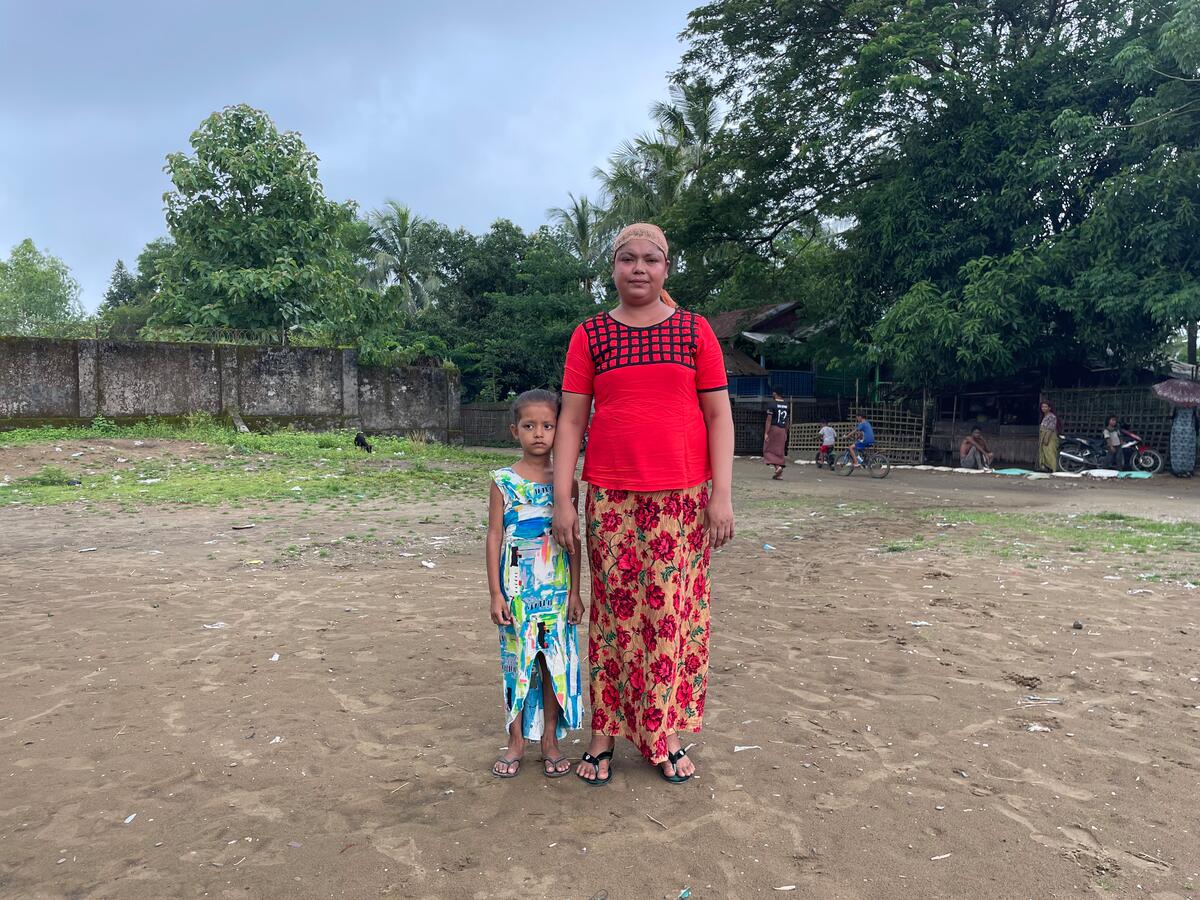Displaced Kenyans form cooperatives to buy new land, rebuild
Displaced Kenyans form cooperatives to buy new land, rebuild

NAIVASHA, Kenya, November 17 (UNHCR) - Barely a year after a wave of post-electoral violence swept the country, some of the tens of thousands of displaced have been quietly and successfully rebuilding their lives in new homes.
One group of 150 families forced to flee from the Uasin Gishu and Trans Nzoia districts of Kenya's Rift Valley Province last January, set up a cooperative, the Jikaze Self-Help Group, and in July bought a 2.5 acre plot of land near the lakeside market town of Naivasha. The families had spent six months living in Naivasha stadium with hundreds of other displaced people.
"This is home for us now," said Christine Ndinda, who sits on the governing board of the Jikaze ("hard work" in Swahili) group. "We have no intention of returning [to our former homes].... The initiative came from the group," she added, while noting that none of them had owned land before.
The Jikaze families are believed to be the first to pool their personal savings and government resettlement grant - 10,000 Kenya shillings (US$130) per family - to buy land on which to live and sustain themselves.
But their example is being followed by other displaced Kenyans in the region, which was hard hit by the violence that followed last December's presidential election. The UN refugee agency is helping more than half-a-dozen such self-help groups by arranging legal advice and arranging meetings with government officials to ensure that the land purchases meet legal requirements and to protect the IDPs from being defrauded by conmen.
There's still a lot of work to do on the Jikaze plot and most of the 810 members of the cooperative are still living in tents provided by UNHCR and using non-food items distributed by the agency. Many have started planting crops, including potatoes, beans, cabbage and maize, but some need help purchasing fertilizer and agricultural tools.
The Jikaze families are currently planning for the future by completing proposals for donations, loans and micro-finance start-up capital from local charitable organizations and the government. "We'd like to buy more land," Ndinda said. "Not just for cultivation of crops, but also to build homes on."
They also need to ensure a regular source of water. Two water tanks have been donated to the settlement by a local church, but they sit empty because the nearest water borehole is three kilometres away.
But the site is slowly being transformed and they have already established a nursery school in one of the UNHCR tents. Dozens of infants attend the daily classes. Hygiene and sanitation have been addressed by the construction of pit latrines.
The post-electoral violence at the start of this year left an estimated 1,200 people dead and some 350,000 people displaced before the rival political factions forged a power-sharing deal in late February. According to official figures, there are only 7,000 displaced people still in camps such as the Naivasha stadium and up to 100,000 IDPs in transit sites or return areas.
High Commissioner for Refugees António Guterres visited Naivasha stadium when he was in Kenya to mark World Refugee Day in June this year. "A camp should only be a short-term solution, but we try to make it as dignified as possible for those who must spend time there. Our biggest wish is that you will soon be able to go home in safety and dignity," he told the IDPs at the time.
The Jikaze families might not be going back to their original homes, but they are creating a new one. And with people from a wide range of backgrounds and trades, including farming, business and retail, the IDPs have the opportunity to build a thriving and happy community on a plot of land that belongs to them outright. They are showing that for some Kenyan IDPs, group effort is making the road back to normality just that little bit easier.
By Andreas Needham in Naivasha, Kenya









